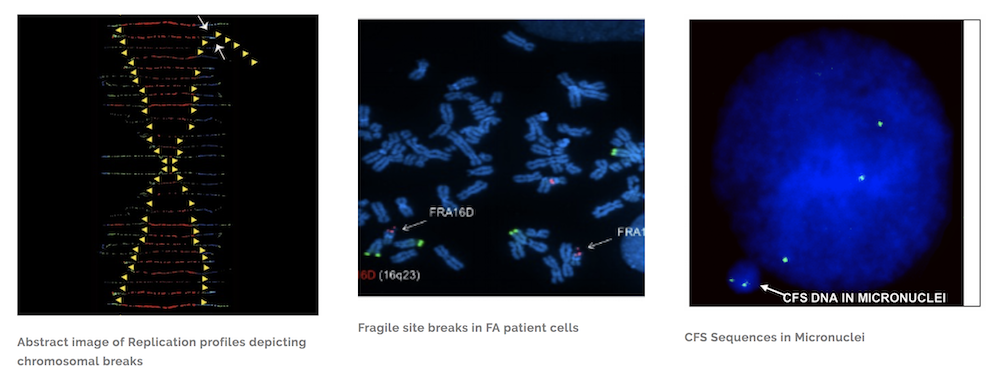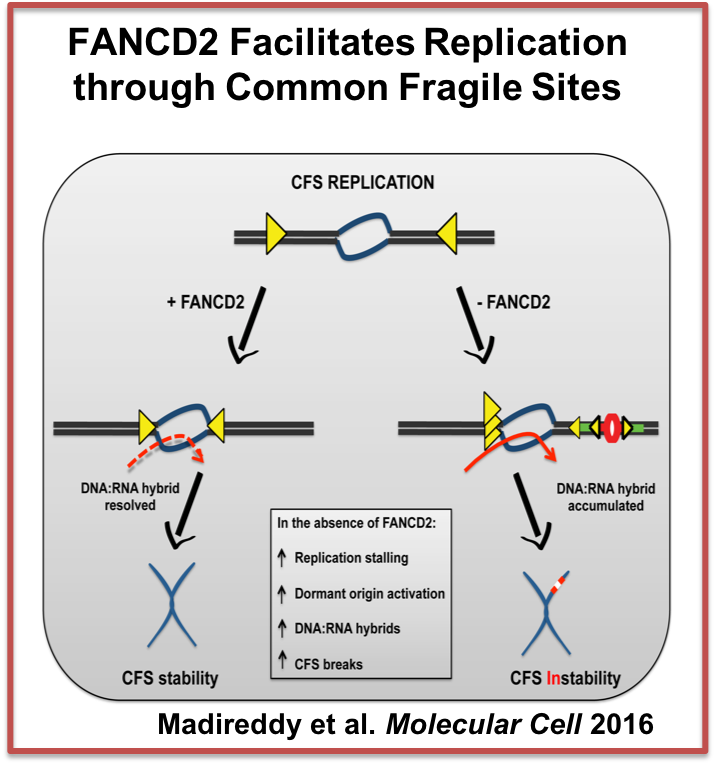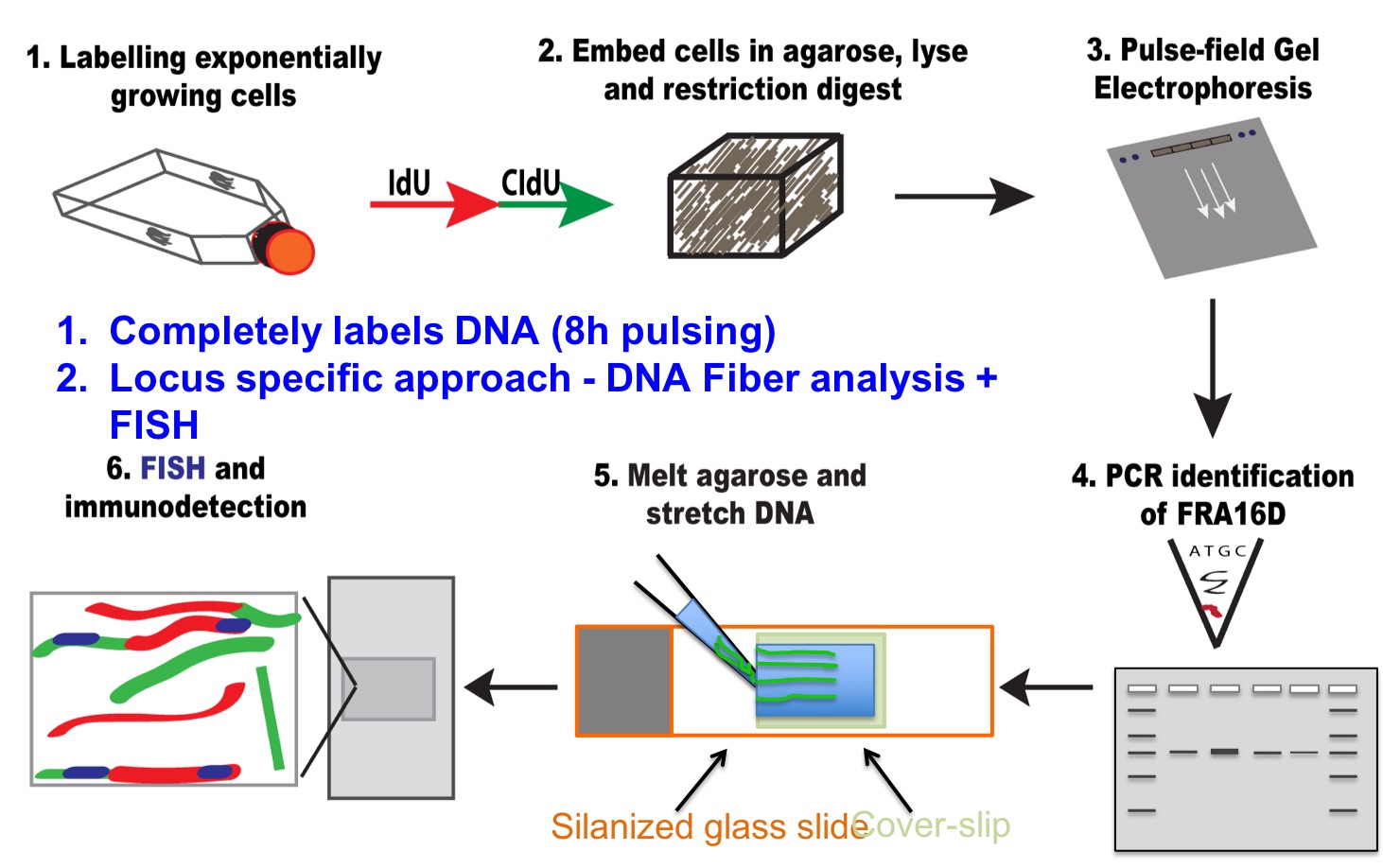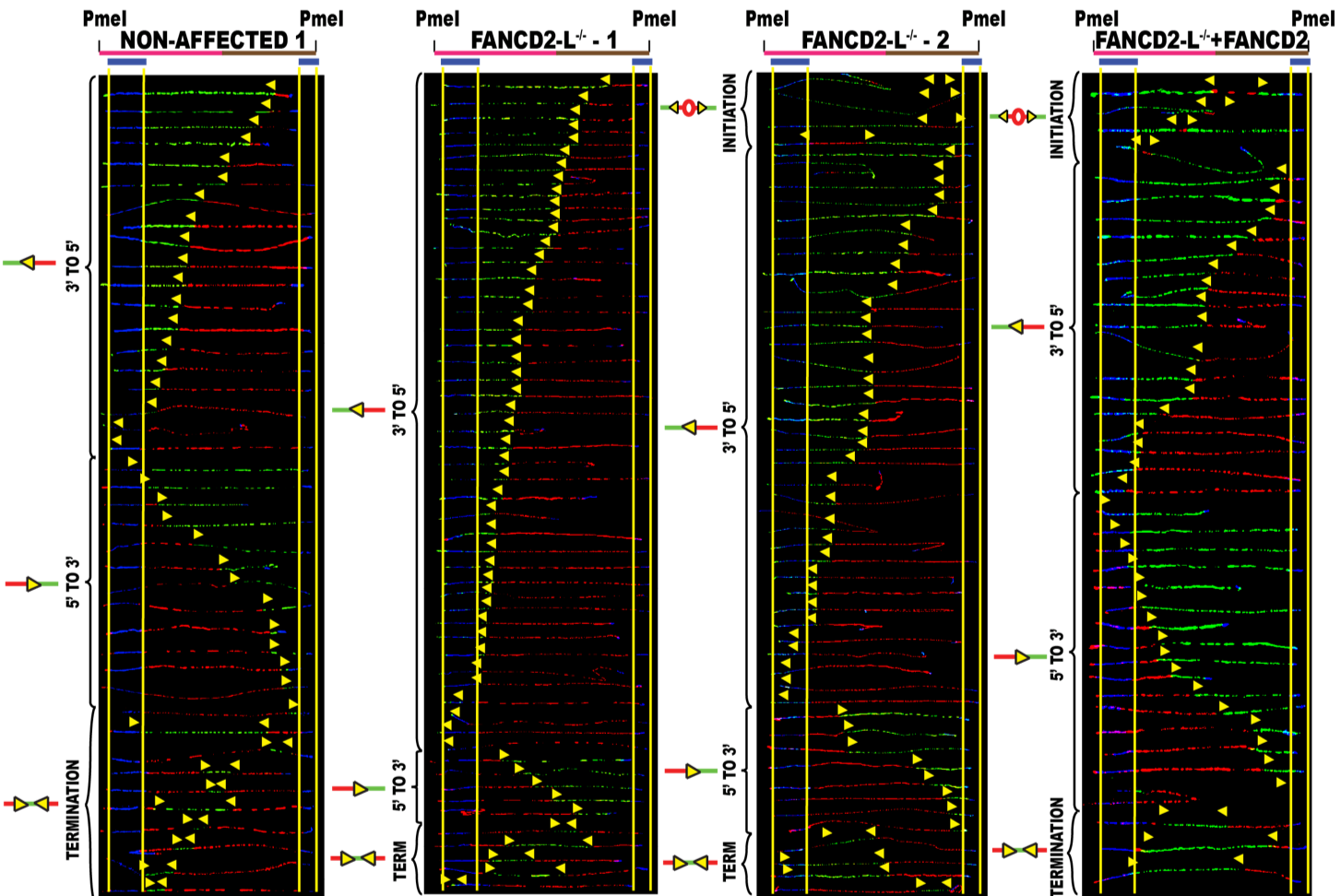Our Research
The cells in the human body are constantly trying to overcome damage to their DNA that results from both exogenous (tobacco smoke, alcohol) and endogenous sources (Reactive aldehydes, ROS) of stress, to ensure normal cellular function. Dysregulation of critical cellular processes, such as DNA replication, repair or transcription, can lead to chromosomal aberrations that lead to malignancies and other debilitating diseases. The overarching goal of our research is to identify markers of replication stress that can help stratify patients based on prognosis and response to therapeutic measures.

MOLECULAR MECHANISMS THAT DRIVE GENOMIC INSTABILITY IN HEMATOLOGICAL MALIGNANCIES AND BONE MARROW FAILURE SYNDROMES
 Research in our lab largely focuses on elucidating the molecular mechanisms that underlie the pathogenesis of cancer-predisposition syndromes and hematological malignancies. In particular, we are exploring the contribution of defective replication, transcription and repair to genomic instability in disorders like Fanconi anemia and Adult T-cell leukemia/lymphoma. In addition to our studies on determining the molecular basis of cancer-predisposition, we are also interested in understanding the primary mechanisms underlying clonal hematopoiesis, hematopoietic stem cell exhaustion/attrition and bone marrow failure using a human stem cell model.
Research in our lab largely focuses on elucidating the molecular mechanisms that underlie the pathogenesis of cancer-predisposition syndromes and hematological malignancies. In particular, we are exploring the contribution of defective replication, transcription and repair to genomic instability in disorders like Fanconi anemia and Adult T-cell leukemia/lymphoma. In addition to our studies on determining the molecular basis of cancer-predisposition, we are also interested in understanding the primary mechanisms underlying clonal hematopoiesis, hematopoietic stem cell exhaustion/attrition and bone marrow failure using a human stem cell model.
Our Approach
 We study changes in DNA replication at the single molecule level using a specialized assay called the single molecule analysis of replicated DNA (SMARD). In addition, we use an array of molecular biology tools, including genomics, to study secondary structure formation and collisions between DNA replication and transcription machinery by a specialized ChIP-seq analysis, and we study changes in topologically associated domains that are strongly implicated in transcriptional changes that destabilize tumor suppressor genes or activate proto-oncogenes.
We study changes in DNA replication at the single molecule level using a specialized assay called the single molecule analysis of replicated DNA (SMARD). In addition, we use an array of molecular biology tools, including genomics, to study secondary structure formation and collisions between DNA replication and transcription machinery by a specialized ChIP-seq analysis, and we study changes in topologically associated domains that are strongly implicated in transcriptional changes that destabilize tumor suppressor genes or activate proto-oncogenes.
All of our strategies and approaches are aimed at identifying key markers (proteins, secondary structures, genomic hotspots, chromatin conformation changes) that could directly help in tailoring therapeutic regimes for cancer patients. In addition, since our research investigates changes at the earliest stages of the disease, we have the power to identify changes (in molecular mechanisms) that are causal in disease manifestation, while eliminating confounding consequential changes that occur downstream.
To learn more about our lab, and employment and collaborative opportunities, please visit https://www.madireddylab.com/
Laboratory Support
1. NIH-NHLBI R00 Grant
2. Hugs for Brady Foundation
3. American Cancer Society


